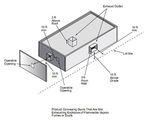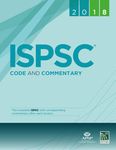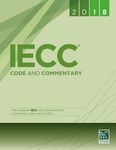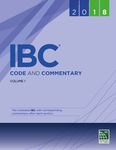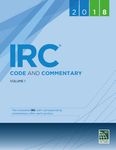CodeNotes Nail Salon Exhaust Requirements in the I-Codes - International Code Council
←
→
Page content transcription
If your browser does not render page correctly, please read the page content below
CodeNotes is provided
courtesy of the ICC PMG
Membership Council
CodeNotes ™
Nail Salon Exhaust Requirements in the I-Codes®
Based on the 2021 International Mechanical Code® (IMC®), International Building Code® (IBC®),
International Existing Building Code® (IEBC®) and International Property Maintenance Code® (IPMC®)
Compliant Manicure Tables Promote Safety for all.
The design of exhaust systems is extremely important to the occupants of a building. There are specific occupancies and
activities that have the potential for introducing hazardous substances into the indoor environment. Nail salons are one
such occupancy. This edition of CodeNotes provides the reader with an understanding of the requirements for an exhaust
system for manicure tables and pedicure stations. There
are approximately 200,000 nail salons in the US utilizing
manicure and pedicure stations. These types of activities use There are approximately
chemicals like acetone, isopropyl alcohol, and formaldehyde
that may be exposed to the atmosphere when the station is 200,000 nail salons in the US
not in use. To maintain safety to workers and customers, the
fumes from these chemicals must be removed from the space. Section 502.20.1 Operation was added to the 2021 IMC
to help accomplish this. This information is covered in more detail on page 3.Table 403.3.1.1(partial)
Occupancy People Outdoor Airflow Area Outdoor Airflow Exhaust
Occupancy
Density Rate in Breathing Zone, Rate in Breathing Zone, Airflow Rate CFM/FT2a
Classification
#/1000FT2a Rp CFM/Person Ra CFM/FT2a
Nail salons b, h 25 20 0.12 0.6
The ventilation prescribed in Table 403.3.1.1 is accomplished Footnote h to Table 403.3 requires nail salons to have
by bringing in the required amount of outdoor air and discharging a source capture system at each manicure and pedicure
or exhausting an approximately equal quantity of indoor air. station. Based on the definition of a source capture system,
Instructions shown in the table and the information given in the exhaust from a station in a nail salon is required to
footnotes b and h describe the application and use of the table capture the air contaminates at their source and to exhaust
along with any special requirements applicable to a specific such contaminates to the outdoor atmosphere. A minimum
occupancy. exhaust rate of 50 cfm is required at each station. Where one
The intent of footnote b, in conjunction with Item 3 of or more required source capture systems operate continuously
Section 403.2.1 Recirculation of Air, is to prevent air from during occupancy, the exhaust rate from such systems shall
the salon from being circulated to some other tenant space. be permitted to be applied to the exhaust flow rate required
Simply put, all return air taken from this salon must be by Table 403.3.1.1 for the nail salon.
returned only to the same salon. As an example, imagine
an air handler that serves two different tenant spaces in a
building and one of the spaces is identified with footnote b in
Table 403.3.1.1. In this case, all supply air delivered by the
air handler to the space governed by footnote b would have to
be exhausted from the building to prevent any supply air from
being returned to the air handler where it would otherwise
contaminate the other space served by the system. The key to
understanding Item 3 in Section 403.2.1 is to remember the
intent is to prevent contaminated air from spreading beyond Nail Salon Station
the space of origin.
Typical Source Capture System (Photos courtesy of SalonSafe, LLC)Location of Exhaust Outlets
Section 502.20 of the IMC requires manicure and pedicure Section 501.3.1 item 2 of the IMC requires the termination
stations be provided with an exhaust system in accordance point of exhaust outlets discharging to the outdoors be
with Table 403.3.1.1. Note h. manicure tables and pedicure located 10 feet (3048 mm) from the property line; 3 feet
stations not provided with factory installed exhaust inlets (914 mm) from exterior walls and roofs; 10 feet (3048 mm)
shall be provided with exhaust inlets located not more than from operable openings into buildings; and 10 feet (3048
12 inches (305 mm) horizontally and vertically from the point mm) above joining grade. This ensures that the exhaust
of chemical application. Many of the chemicals used in these outlets would terminate far enough into the undisturbed
stations are toxic and put customers and employees at risk. wind stream and away from the cavity and wake zones around
This is the reason Section 502.20.1 of the IMC was added the building. This counteracts the negative effects of wind
requiring exhaust systems to have controls that operate the induced conditions and prevents the reentry of exhaust
system continuously when the space is occupied. products into the building through openings and fresh air
The balancing of HVAC systems involves the adjustment of the intakes.
system so that it will perform in the manner it was intended
by the designer. Ventilation systems shall be balanced by
an approved method. Such balancing shall verify that the
ventilation system is capable of supplying and exhausting the
airflow rates required by section 403.3 and 403.3.1.2 of the
IMC.
Note: Ventilation systems shall be designed
to have the capacity to supply the minimum
outdoor airflow rate, determined in accordance
with section 403.3.1.1 of the IMC.With regards to alterations of nail salons in existing buildings,
Section 808 of the IEBC is consistent with the basic premise
for new building elements and materials given in IEBC
Chapter 7, Section 702; replacing elements is required to
comply with the applicable code for new construction. As
well, the amount of mechanical ventilation must be provided
in accordance with the IMC as required.
The only exception is found in Section 808.2, Altered Existing
Systems 808, which allows special minimum provisions for
existing mechanical equipment, if minimum ventilation rates
are provided.
Chapter 4 of the IPMC mandates that the owner be responsible
for the compliance with all light, ventilation and space
requirements. A non-compliant structure cannot be occupied
until it is brought into compliance with the criteria. Section
403.4 requires where injurious, toxic, irritating or noxious
fumes, gases, dust or mist are generated, a local exhaust
ventilation system be provided to remove the contaminating
agent at the source. The air shall be exhausted to the exterior
and not be recirculated to any space. If the exhausted air
contains dust, dirt, chemicals or other contaminants,
the exhaust may require additional treatment to prevent
contamination of the exterior air.
Note: Some local jurisdictions may require that
Typical Pedicure Station
mechanical plans with ventilation requirements
be included with the building plan set upon
submittal of the permit application.
For complete coverage of the I-Codes, please
contact ICC to order the Commentary Complete
Collection and other code support publications.
shop.iccsafe.org | 1-800-786-4452
Copyright© 2020 | International Code Council
20-18724 www.iccsafe.org | 1-888-ICC-SAFE (422-7233)You can also read




